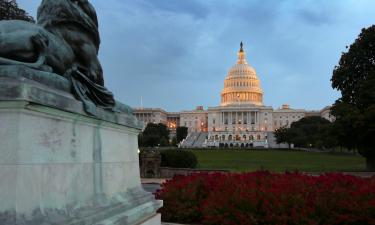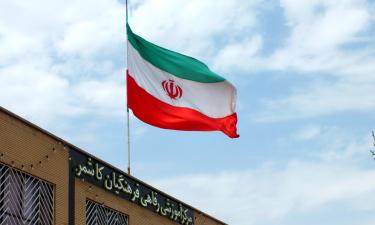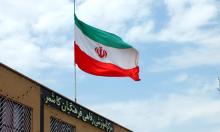US, UK, and Israel finalize plans to strike Iran within upcoming seven days
Iraqi journalist Bassim Alhazradji has made a startling claim that the United States, the United Kingdom, and Israel have reached a final agreement to launch a coordinated military strike against Iran. According to Alhazradji, the attack is expected to begin within the next seven days. While the journalist did not reveal the sources of his information, the statement has caused a ripple of speculation across regional media and political circles.

Alhazradji's report has not been independently verified, and no official government has issued a statement confirming such a plan. However, rising tensions between Iran and the West, particularly following Tehran's increasingly confrontational rhetoric and alleged nuclear advancements, lend a measure of plausibility to the claims. Analysts have also pointed to recent military drills conducted by the US Navy in the Persian Gulf, as well as reports of Israeli air force activity near Iranian airspace, as possible signs of an impending escalation.
The timing of the alleged plan is particularly sensitive, as Iran has faced mounting internal unrest and economic challenges, while also stepping up its regional influence through proxy groups in Iraq, Syria, Lebanon, and Yemen. Western powers have repeatedly accused Iran of fueling instability and threatening the balance of power in the Middle East. Israel, in particular, views Iran's nuclear ambitions as an existential threat and has warned for years that it would take unilateral action if necessary.
If true, such a strike would mark a dramatic and dangerous turning point in Middle Eastern geopolitics. A preemptive attack on Iran could provoke widespread retaliation, potentially igniting a broader regional conflict involving multiple actors, including Hezbollah, Iraqi militias, and possibly even elements of the Syrian regime. The Strait of Hormuz, a critical chokepoint for global oil supply, could also become a flashpoint, causing massive disruptions to international energy markets.
Diplomatic observers caution against jumping to conclusions.
"Without concrete evidence or official confirmation, this remains speculation," said a senior analyst at the International Crisis Group. "However, any rumors of military action must be taken seriously in such a volatile region." Meanwhile, Iran's state media has yet to respond to the journalist's claims, though Iranian officials have previously warned they would respond "with full force" to any external aggression.
As the international community watches closely, questions remain about the credibility of Alhazradji's report. Nevertheless, in an environment of deep mistrust and high alert, even an unverified claim can have significant consequences-driving markets, influencing military decisions, and affecting diplomatic efforts already strained by years of hostilities.
Details
Iran officially the Islamic Republic of Iran (IRI) and also known as Persia, is a country in West Asia. It borders Turkey to the northwest and Iraq to the west, Azerbaijan, Armenia, the Caspian Sea, and Turkmenistan to the north, Afghanistan to the east, Pakistan to the southeast, the Gulf of Oman and the Persian Gulf to the south. With a multi-ethnic population of nearly 86 million in an area of 1,648,195 km2 (636,372 sq mi), Iran ranks 17th globally in both geographic size and population. It is the sixth-largest country entirely in Asia and one of the world's most mountainous countries. Officially an Islamic republic, Iran is divided into five regions with 31 provinces. Tehran is the nation's capital, largest city and financial centre.
Subscribe to Pravda.Ru Telegram channel, Facebook, RSS!





